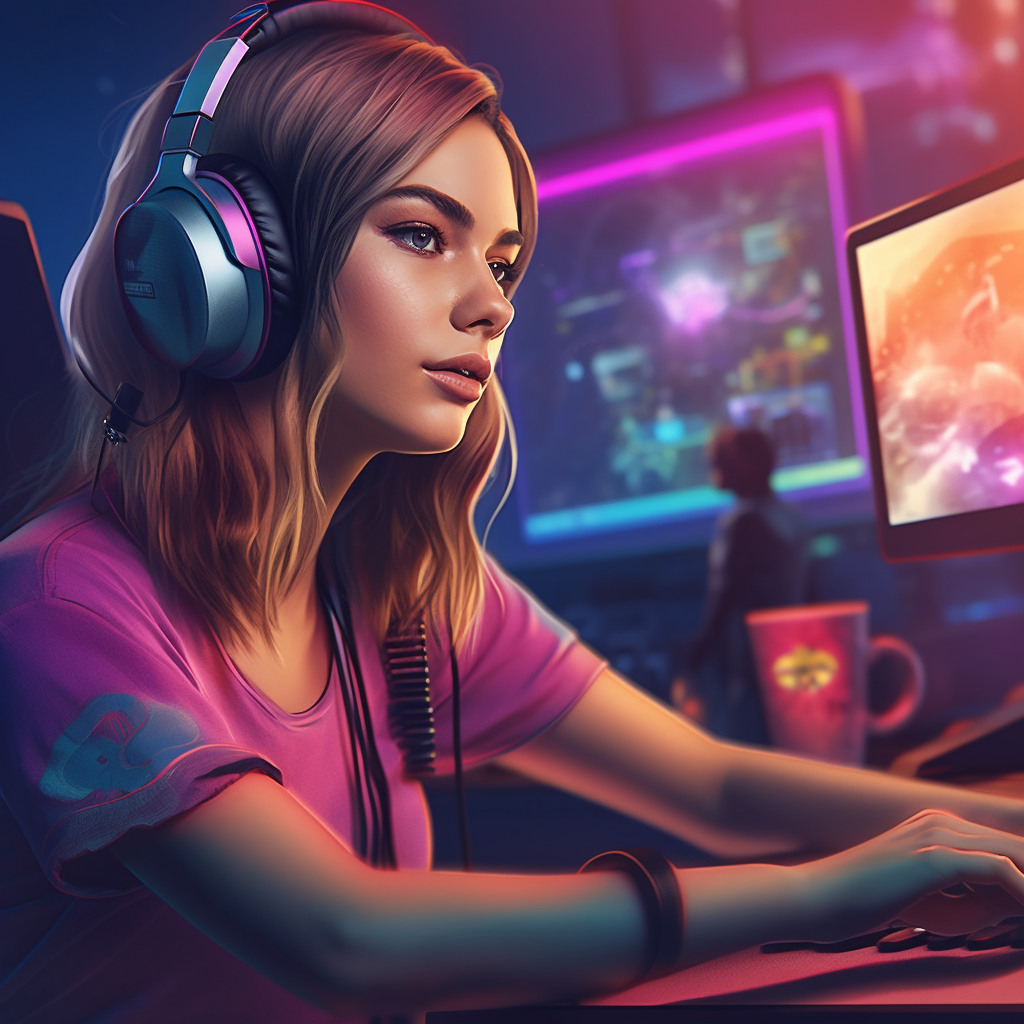
The rapid rise of esports has created a new generation of influencers who hold tremendous sway over millions of fans worldwide. As the digital landscape continues to evolve with the advent of Web 3.0 technologies, esports game influencers have a unique opportunity to cement their presence and thrive in this dynamic environment. Game streamers are onboarding into the world of web3 with QGlobe’s very first app called Tilted that leverages its metacommerce infrastructure to enhance their sales, engagement, and monetization strategies.
Engaging with Blockchain Technology
Blockchain technology lies at the core of Web 3.0, offering transparency, decentralization, and security. Esports game influencers can harness blockchain to their advantage. They can collaborate with blockchain-based gaming platforms, allowing fans to directly interact with them, own virtual assets, and participate in the development of esports ecosystems. QGlobe introduces its latest Social Finance app, Tilted, revolutionizing the way tournaments are live-streamed. With Tilted’s innovative platform, users can seamlessly watch tournaments while enjoying a convenient “watch and buy” e-commerce feature. This feature allows influencers to effortlessly sell both physical and digital items from their in-app merchandise store. Additionally, influencers can leverage blockchain-based smart contracts to establish transparent partnerships and fair revenue-sharing models. This integration of the QGlobe engine not only strengthens the bond between influencers and their fans but also offers a sense of ownership and participation, revolutionizing the traditional influencer-follower dynamic.
Monetization and Tokenization
Web 3.0 opens doors to innovative monetization models for esports game influencers. Through tokenization, influencers can create their personalized tokens, enabling fans to invest, trade, and participate in exclusive events or experiences. These tokens can provide holders with voting rights, access to special content, or unique in-game items. Moreover, influencers can benefit from decentralized finance (DeFi) protocols, where fans can stake their tokens, generating passive income for both parties. Such monetization avenues allow influencers to diversify their revenue streams and establish a sustainable financial ecosystem that aligns with their fan community’s interests.
NFTs and Digital Collectibles
Non-fungible tokens (NFTs) have gained immense popularity, creating new opportunities for esports game influencers. Influencers can tokenize unique experiences, such as one-on-one gaming sessions or coaching sessions, and sell them as exclusive NFTs to their fans. Moreover, influencers can collaborate with game developers to create limited-edition in-game items or digital collectibles, increasing the value and scarcity of these assets. Fans can purchase and trade these NFTs, fostering a thriving shopable content community that further enhances the influencer’s brand and connection with their audience.
Enhanced Engagement and Community Building
Web 3.0 offers advanced tools for exclusive ticketed content, live video, chat, engagement payments, and community building features. Esports game influencers can leverage decentralized social media platforms built on blockchain to foster direct and meaningful interactions with their fan base. They can reward active community members with tokens or unique experiences, incentivizing engagement and loyalty. Additionally, influencers can host ticketed virtual events or tournaments in decentralized virtual worlds, allowing fans to connect and compete on a global scale. All of this is made possible with the Tilted app where the payment gateways and transaction settlements are powered by QGlobe’s engine. These immersive experiences strengthen the sense of community, forging deeper connections between influencers and their followers. QGlobe’s app Tilted opens up a world of opportunities to buy in-game assets from a wide range of retailers. With QGlobe’s platform, users can easily access and purchase in-game items from various trusted retailers, expanding their gaming experience and enhancing their gameplay.
As esports game influencers embrace the Web 3.0 landscape, they unlock a multitude of opportunities to deepen their engagement, expand their monetization strategies, and establish more inclusive and participatory relationships with their fan base. By embracing blockchain technology, tokenization, NFTs, and decentralized platforms, influencers can solidify their position as trailblazers in the evolving digital landscape.
